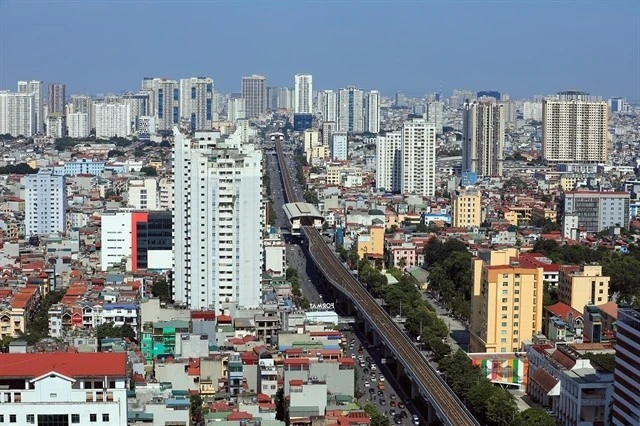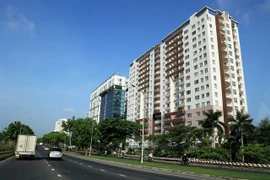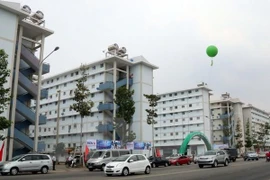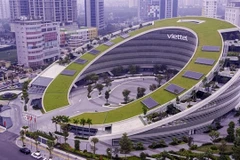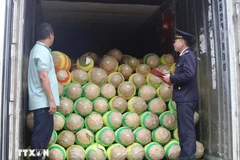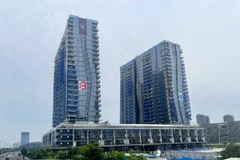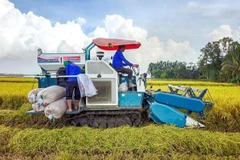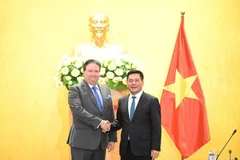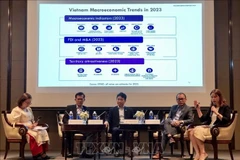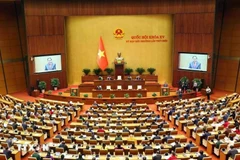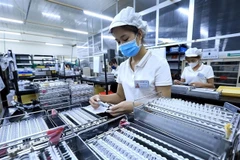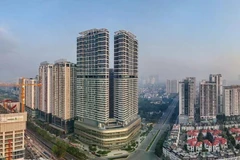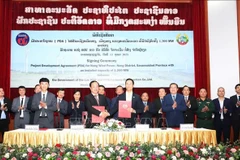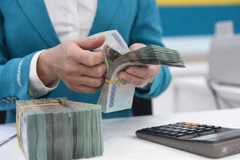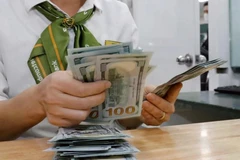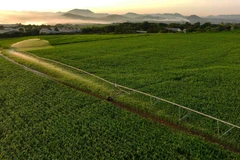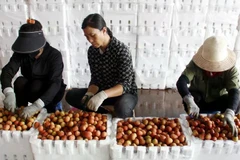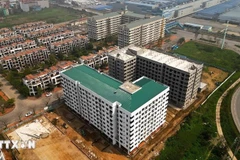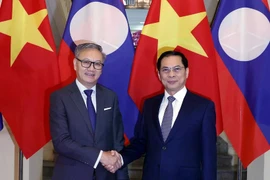Hanoi (VNS/VNA) — The demand for housing from foreigners is anticipated to continue, driving an existing upward trajectory in Hanoi, signalling a positive development for the domestic real estate market.
Over several years, Hanoi has increasingly become an attractive destination for foreign workers, a trend that is set to accelerate as more opportunities for home ownership open up.
Each year, approximately 10,000 new foreign workers are granted licences to work in Hanoi. The majority of these are highly skilled professionals, which drives the demand for high-end housing options.
This influx of skilled labour is in line with Vietnam's broader economic growth and the ongoing wave of foreign direct investment (FDI) into the country.
According to the Vietnam Association of Real Estate Brokers (VARS), this growing workforce has contributed to Hanoi becoming a key destination in terms of foreign demand.
A major development in this trend is the implementation of the Housing Law 2023, which officially took effect on August 1, 2024.
This law has made it significantly easier for foreigners to buy homes in Vietnam, facilitating a surge in demand for real estate ownership among foreigners.
The law provides more favourable conditions for property ownership by allowing foreign buyers to hold property for up to 50 years, with the possibility of a one-time extension. This has incentivised many foreign customers to consider long-term residence options, particularly living in high-end properties.
According to VARS Chairman Nguyen Van Dinh, while rental properties continue to be in demand, there has also been a notable rise in the number of foreigners looking to purchase houses.
The demand for homeownership is especially pronounced among expatriates and skilled foreign professionals who intend to live in Vietnam over the longer term.
The demand from foreign workers continues to increase, leading to rising the demand for luxury housing. High-end apartments and residential projects in prime locations closing to business hubs and cultural centres, are especially attractive to this consumer cohort. Foreigners working in Hanoi often prioritise modern living environments equipped with a range of amenities.
While foreign homeownership in Vietnam has been relatively low in the past, the new legal framework is already showing signs of boosting this market segment.
Between 2015 and the third quarter of 2023, more than 3,000 foreign nationals purchased property in Vietnam, with Hanoi accounting for a significant portion of these transactions.
By the first half of 2024, over 1,000 foreigners had already acquired property in the capital.
In addition, the Hanoi Department of Construction has approved several new residential projects, adding around 3,000 apartments to the market for foreign buyers, many of which are located in high-end urban areas.
These new developments are selling quickly, with approximately 60% of units in prime locations already sold. Prices for these high-end apartments are also about 10% higher than those available to local buyers, reflecting the strong demand from the foreign community.
The growing demand for property ownership among foreigners is seen as a positive indicator for Hanoi’s real estate market.
According to Pham Thi Mien, deputy head of VARS’ Market Research, Consulting and Investment Promotion Department, this trend is expected to continue as more foreign professionals seek to settle in Vietnam.
The country's need for skilled labour makes it an ideal destination for foreign nationals, who are increasingly interested in owning homes during their time in Vietnam.
Additionally, Vietnam’s improving business environment and long-term real estate investment opportunities are contributing to the demand for homeownership.
Many foreign nationals are motivated to invest in property as a stable investment in a country with growing economic potential. The increasing appeal of real estate in Vietnam, coupled with high property prices and stricter regulations abroad, makes homeownership in Hanoi particularly attractive.
However, there are challenges for developers. To meet the growing demand, investors will need to tailor projects to specific foreign customer groups based on nationality, financial capacity and personal preferences.
In doing so, they can ensure the success of these high-end residential developments and contribute to the ongoing growth of Hanoi’s real estate market./.
